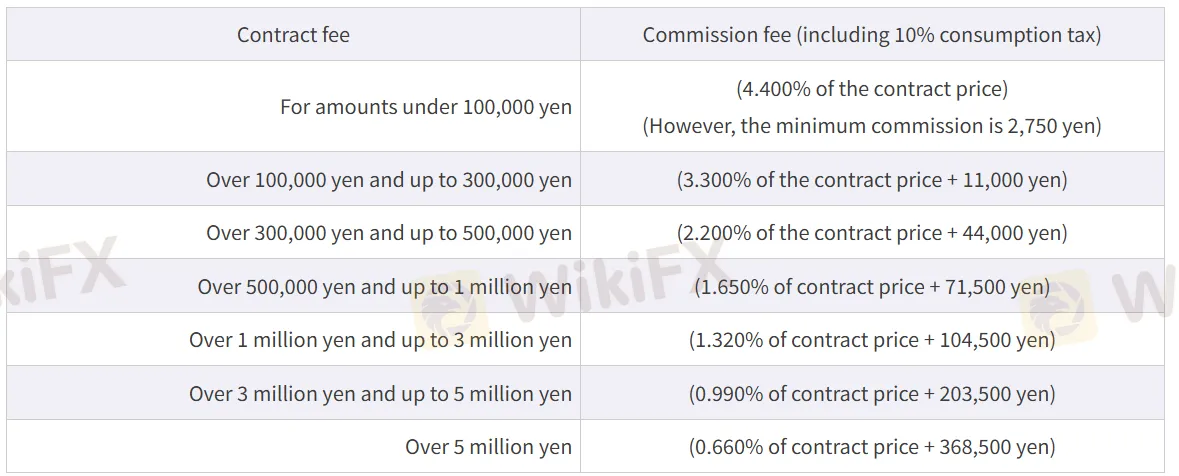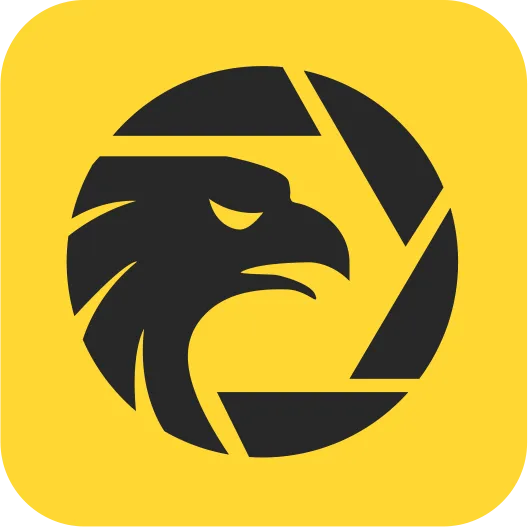Unternehmensprofil
| tobu-sec Überprüfungszusammenfassung | |
| Gegründet | 2004 |
| Registriertes Land/Region | Japan |
| Regulierung | FSA |
| Investitionsprodukte | Aktien, Anleihen, Investmentfonds, Futures, Optionen |
| Handelsplattform | / |
| Kundensupport | Servicezeiten: Werktage 9:00 - 17:00 Uhr |
| Tel: 048-760-1826 | |
tobu-sec Informationen
tobu-sec ist ein japanisches Finanzunternehmen, das von der FSA reguliert wird und verschiedene Produkte anbietet, darunter Aktien, verschiedene Anleihen, Investmentfonds und Derivate.
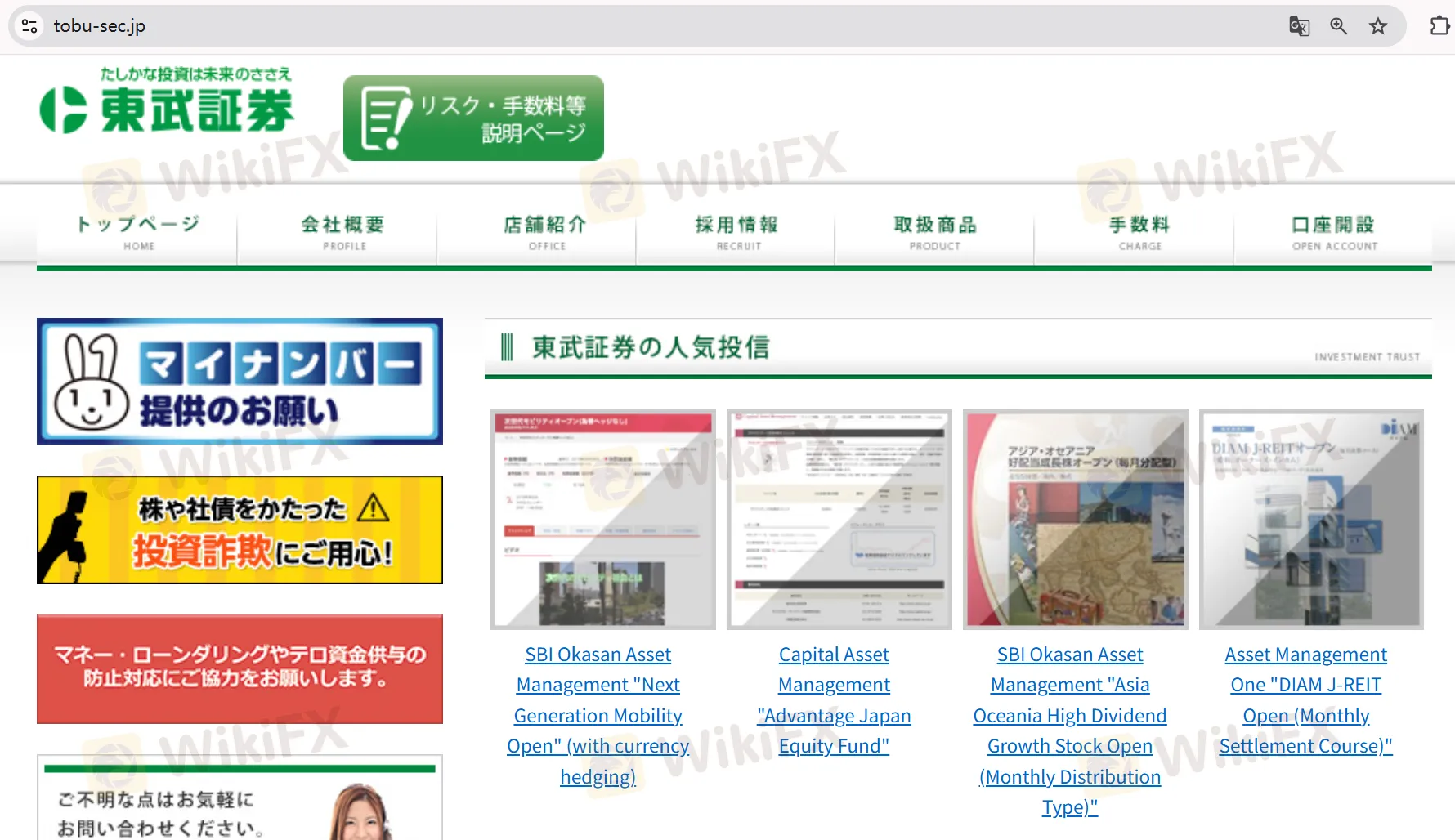
Vor- und Nachteile
| Vorteile | Nachteile |
| Langjährige Geschichte | Keine Informationen zur Handelsplattform |
| Reguliert durch FSA | Keine Informationen zu Ein- und Auszahlungen |
| Verschiedene Anlageprodukte | |
| Transparenz bei Provisionen |
Ist tobu-sec legitim?
tobu-sec verfügt über eine Retail-Forex-Lizenz, die von der Financial Services Agency (FSA) in Japan reguliert wird, mit der Lizenznummer 関東財務局長(金商)第120号.
| Regulierungsbehörde | Aktueller Status | Reguliertes Land | Lizenztyp | Lizenzierte Einheit | Lizenznummer |
| Financial Services Agency (FSA) | Reguliert | Japan | Retail-Forex-Lizenz | tobu-sec株式会社 | 関東財務局長(金商)第120号 |
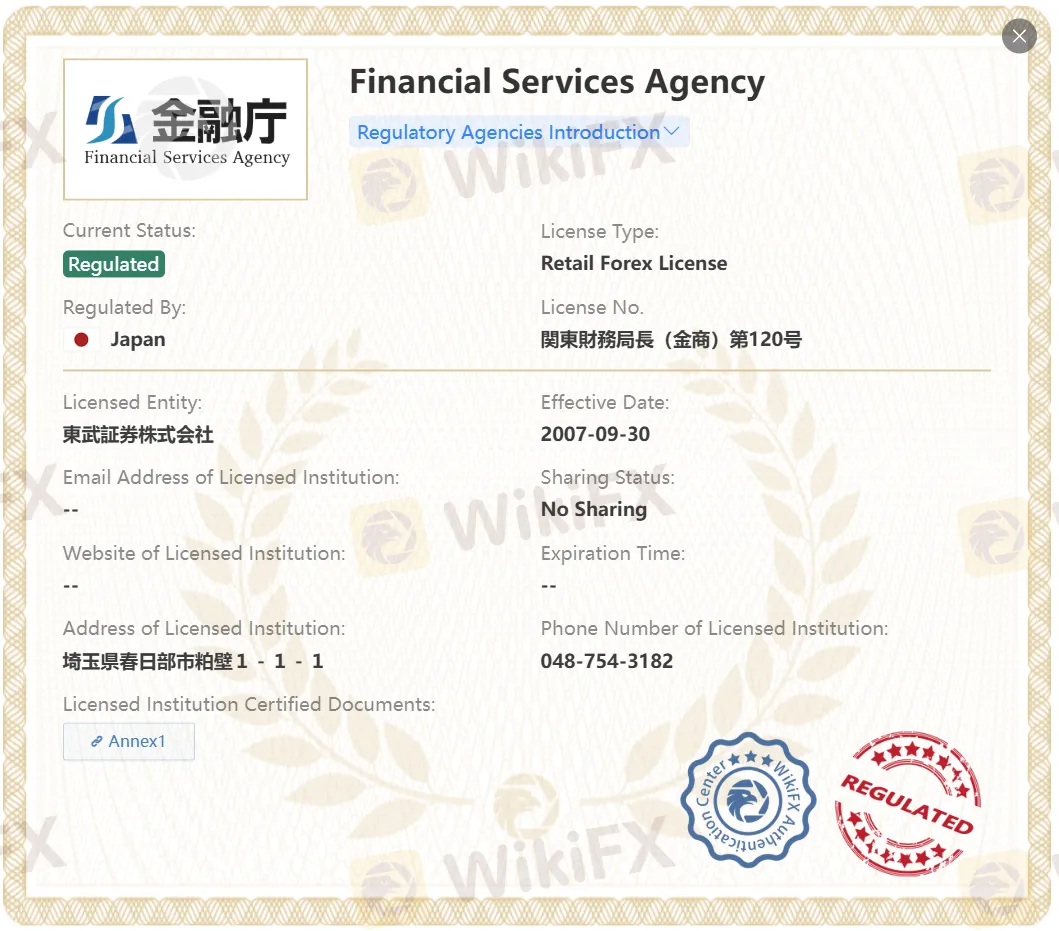
Produkte
Die Produkte von Tobu-sec umfassen verschiedene Wertpapiere wie inländische und ausländische Aktien, verschiedene Arten von Anleihen, Investmentfonds und Derivate wie Indexfutures und Optionen sowie institutionelles Margengeschäft.
| Produkte | Unterstützt |
| Aktien | ✔ |
| Anleihen | ✔ |
| Investmentfonds | ✔ |
| Futures | ✔ |
| Optionen | ✔ |
| Forex | ❌ |
| Waren | ❌ |
| Indizes | ❌ |
| Kryptowährungen | ❌ |
| ETFs | ❌ |
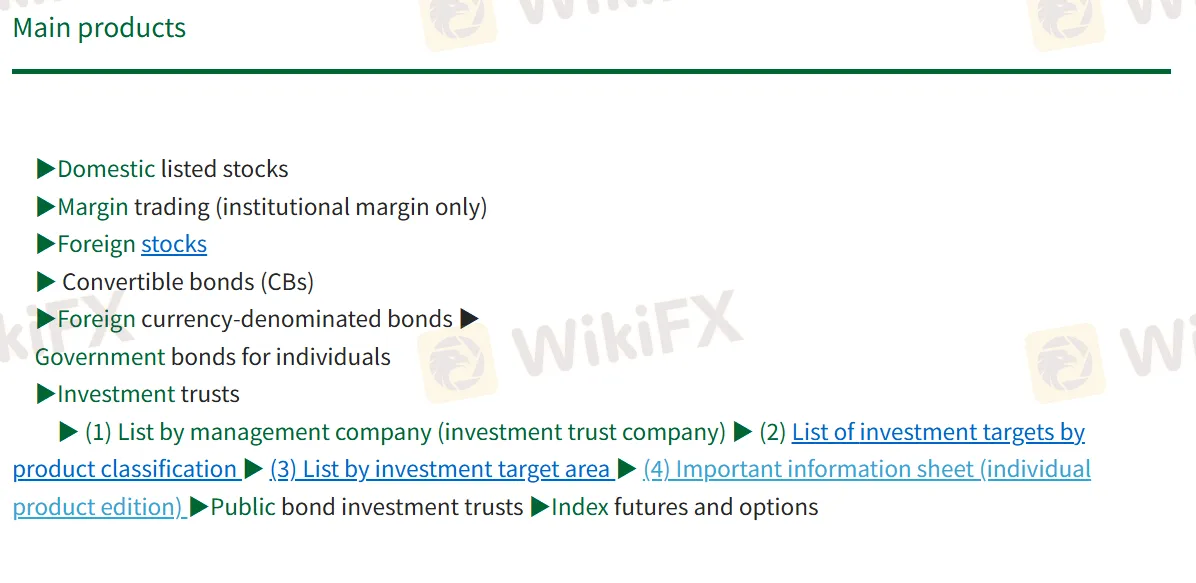
Provisionen
Aktien Maklerprovisionsstruktur - Grundlegende Aktien Maklerprovisionsrate
| Vertragsbetrag | Provisionsgebühr (inkl. 10% Steuer) |
| Weniger als 1 Million Yen | 1,265% des Vertragspreises (Min. 2.750 Yen) |
| 1M bis 3M Yen | 0,935% des Vertragspreises + 3.300 Yen |
| 3M bis 5M Yen | 0,880% des Vertragspreises + 4.840 Yen |
| 5M bis 10M Yen | 0,660% des Vertragspreises + 15.840 Yen |
| 10M bis 30M Yen | 0,550% des Vertragspreises + 26.840 Yen |
| 30M bis 50M Yen | 0,330% des Vertragspreises + 92.840 Yen |
| Über 50 Millionen Yen | 257.840 Yen |
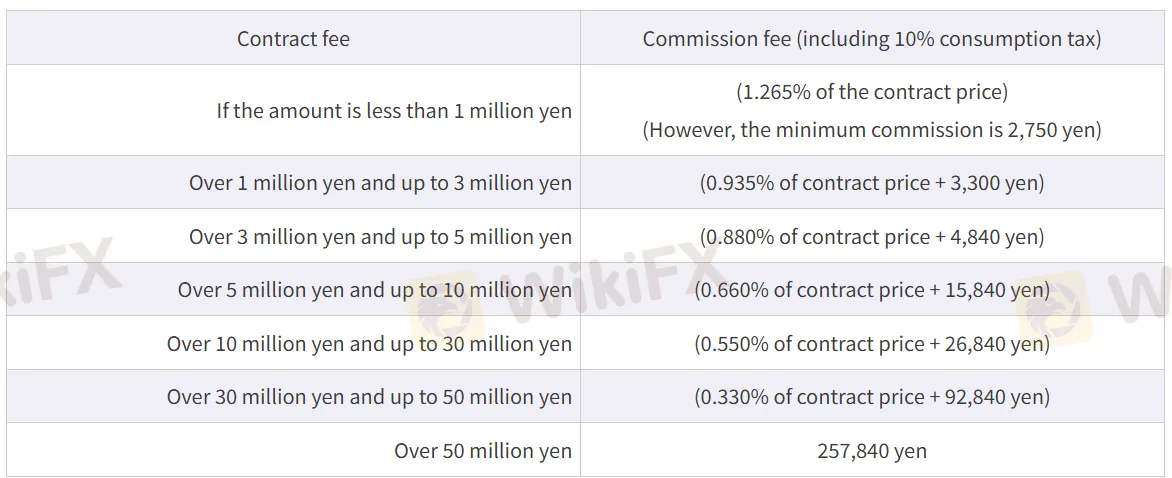
Anleihenmaklerprovisionsraten - Regierungs- Anleihen
| Gesamtnennwert | Provisionsgebühr (inkl. 10% Steuer) |
| Bis zu 5 Millionen Yen | 44,0 Sen pro 100 Yen Nennwert |
| Über 5M bis 10M Yen | 38,5 Sen pro 100 Yen Nennwert |
| Über 10M bis 50M Yen | 33,0 Sen pro 100 Yen Nennwert |
| Über 50M bis 100M Yen | 27,5 Sen pro 100 Yen Nennwert |
| Über 100M Yen bis 1 Milliarde Yen | 11,0 Sen pro 100 Yen Nennwert |
| Über 1 Milliarde Yen | 5,5 Sen pro 100 Yen Nennwert |
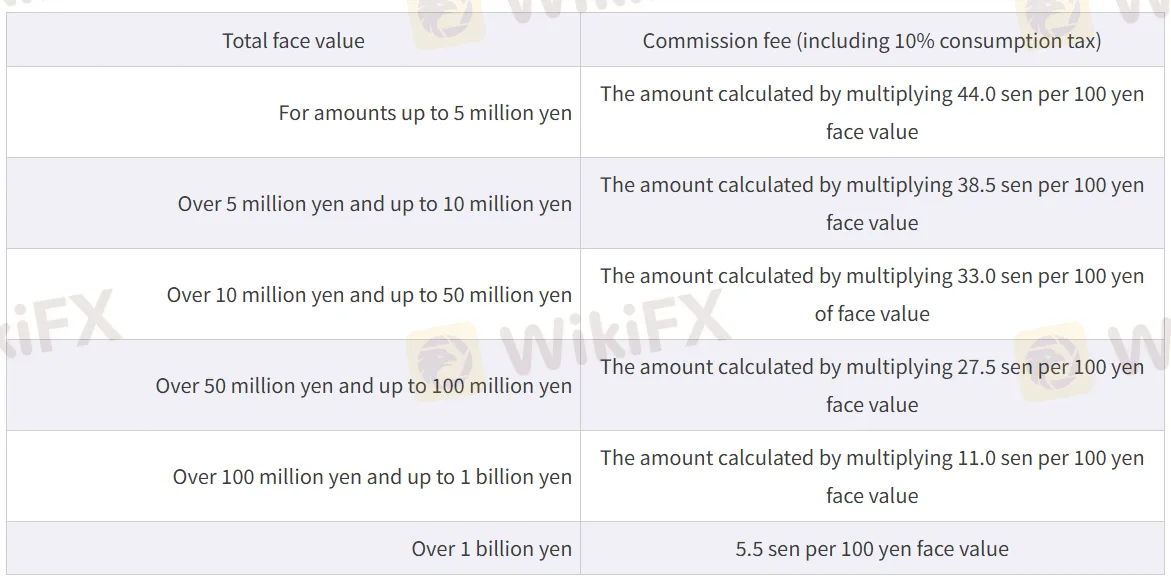
Wertpapier- Options- Handel Kommission Gebühren
| Vertragsbetrag | Provision (inkl. 10% Steuer) |
| Unter 100.000 Yen | 4,400% des Vertragspreises (Min. 2.750 Yen) |
| 100.000 bis 300.000 Yen | 3,300% des Vertragspreises + 11.000 Yen |
| 300.000 bis 500.000 Yen | 2,200% des Vertragspreises + 44.000 Yen |
| 500.000 bis 1M Yen | 1,650% des Vertragspreises + 71.500 Yen |
| 1M bis 3M Yen | 1,320% des Vertragspreises + 104.500 Yen |
| 3M bis 5M Yen | 0,990% des Vertragspreises + 203.500 Yen |
| Über 5 Millionen Yen | 0,660% des Vertragspreises + 368.500 Yen |
